Thousands of Latin Americans have taken to the streets in the last few months to protest their governments and demand change within their countries. Here is a roundup of recent protests in Latin America:
PERU
Protests in Peru have picked back up after the Constitutional Tribunal approved a request to free opposition leader Keiko Fujimori. Fujimori was in preliminary detention while being investigated for possible corruption. She is the oldest daughter of former president Alberto Fujimori (currently in prison for human rights crimes) and is accused of accepting money from a Brazilian construction company for her 2011 presidential campaign.
00:24
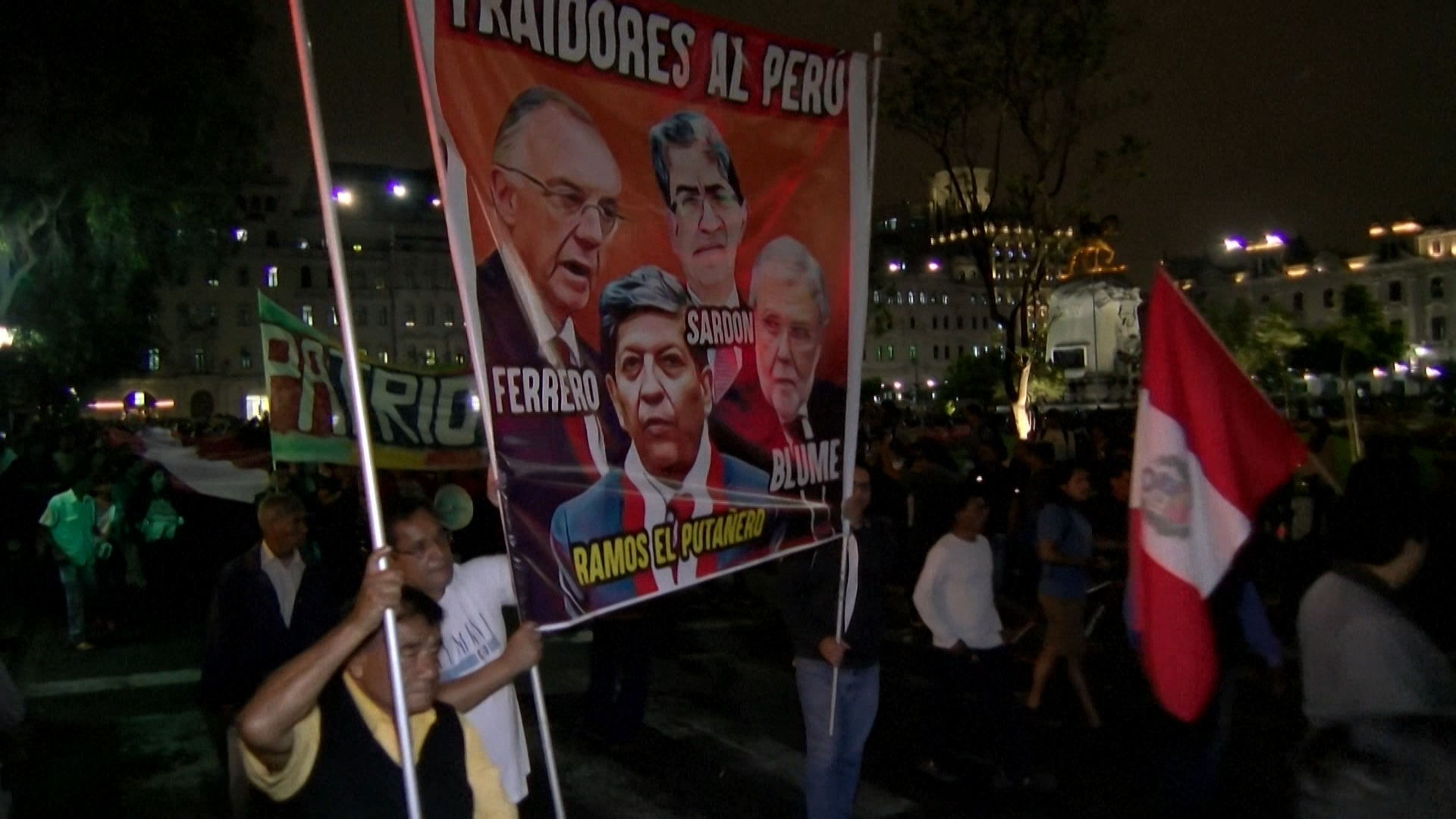
Protests began in September when President Martin Vizcarra dissolved congress and called for parliamentary elections in April 2020. In response, the president of the congress declared a temporary removal of the president, saying he "broke the constitutional order". Vice-President Mercedes Araoz was later sworn in, but resigned the next day. Many protested against corruption within congress and in favor or Vizcarra dissolving it.
Recently, Peru is planning a reform package that includes better health care and a higher minimum wage.
NICARAGUA
Nicaraguans have also been protesting sporadically throughout the past year. Recent anti-government protests first began in April 2018 with a social security reform plan that increased taxes and decreased benefits. The government responded with force by deploying the military, banning public protests and arresting opponents. Many Nicaraguans continue to protest, demanding President Daniel Ortega hold new elections and resign, but they face repression from security forces. Protests have picked back up, as mothers of political prisoners held hunger strikes and clashed with pro-government supporters. The Inter-American Commission for Human Rights says more than 300 people have died and about 70,000 people have been forced to leave the country due to government repression.
COLOMBIA
Colombia is the most recent Latin American country to see protests. A nationwide general strike began November 12th in protest of President Iván Duque's government. People are angry about corruption and possible austerity measures. They are also worried about changes to the minimum wage, pensions, and tax reforms. This strike is one of the largest protests the country has seen in years. Most of the protests have been peaceful but there have been clashes with police in Bogotá, the nation's capital. Ahead of the strike, Colombia closed its borders. Protest leaders of the National Strike Committee, are now asking to meet with President Duque.
01:00
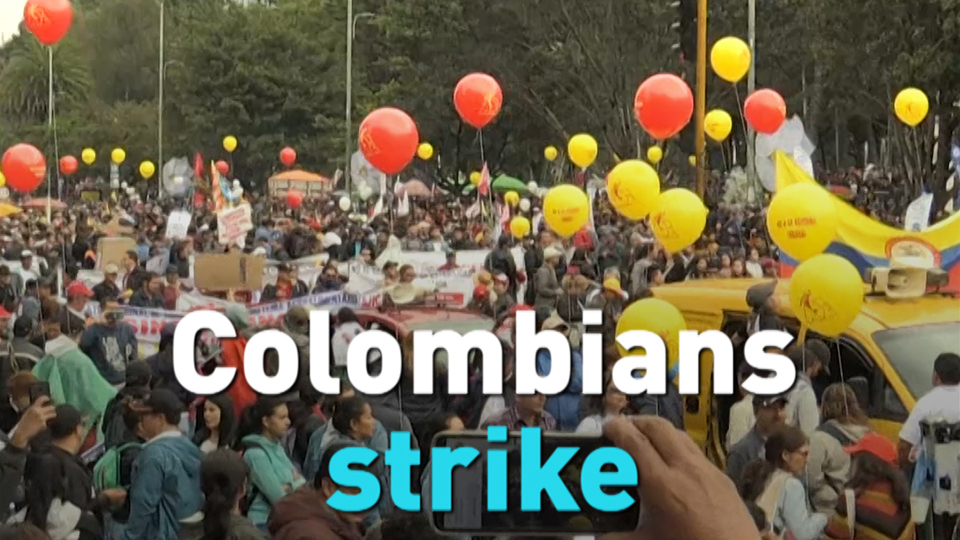
VENEZUELA
Protests began around mid-November. Led by opposition leader Juan Guaidó, many are protesting President Nicolás Maduro. They accuse the government of election fraud, economic collapse, and a failure of water and energy systems. More than four million people have left Venezuela because of the economic crisis. Several countries such as Brazil, Colombia, and the U.S. have recognized Guaidó as interim president of Venezuela, while countries such as Bolivia, Nicaragua, and Cuba support Maduro. The results of the May 2018 presidential election between Guaidó and Maduro are disputed.
BOLIVIA
Bolivian protests began October 21st and are also ongoing. Protests began over claims of election fraud in the October 20th presidential election between incumbent Evo Morales and opponent Carlos Mesa. The Organization of American States audited the election and found "serious irregularities." President Morales then resigned and fled to Mexico. After he left, several presidential runners-up also stepped down. Former second vice-president of the Senate Jeanine Áñez, has declared herself interim president and is tasked with organizing a new presidential election. She has also stated that Morales and his vice president cannot participate, and if Morales returns to Bolivia, he must "answer to justice." Although Morales is gone, protests in Bolivia continue. Pro-Morales and indigenous groups are protesting the new government. Morales was the country's first indigenous president and the new leadership has no indigenous representation.
01:20
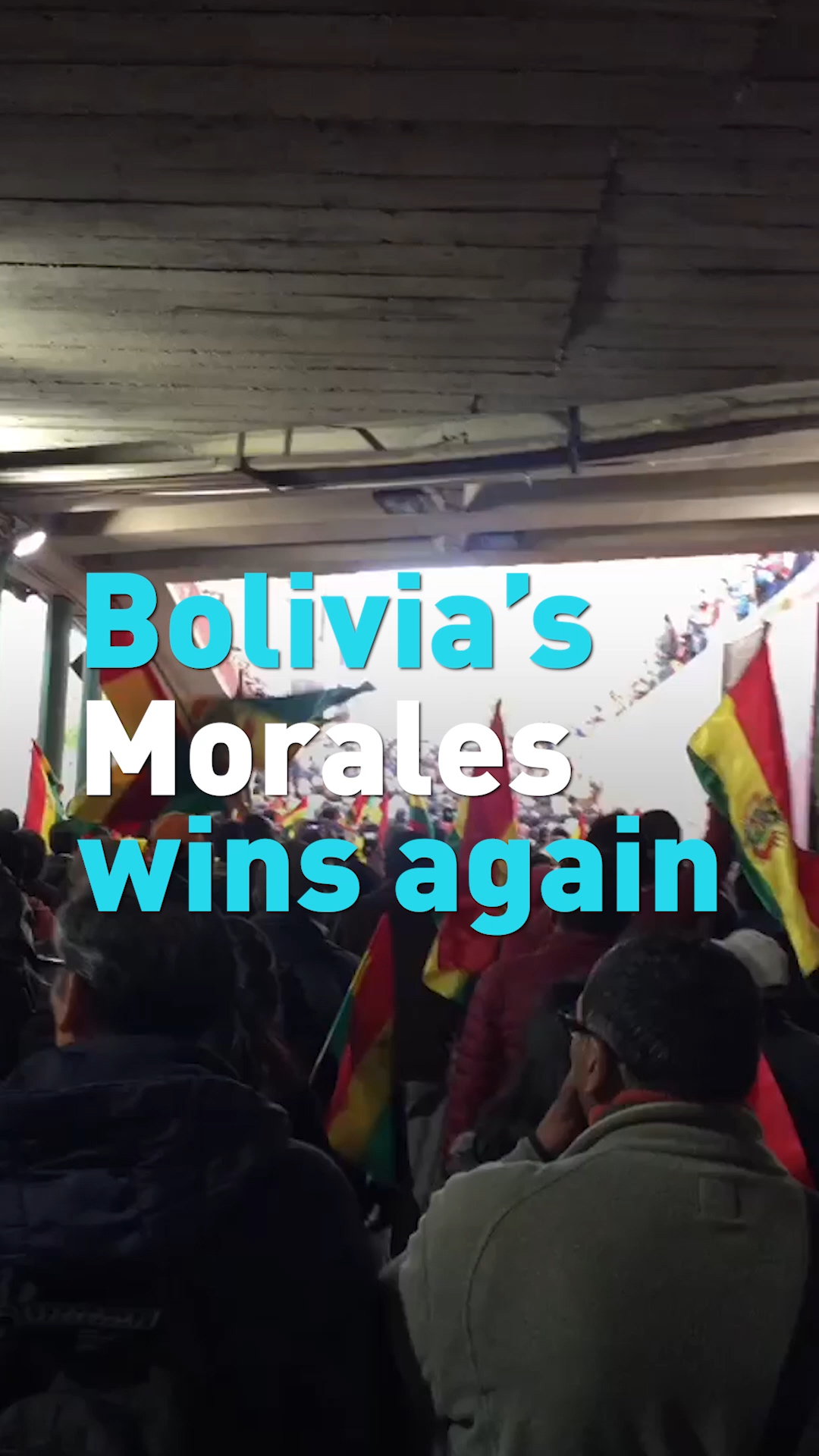
01:06
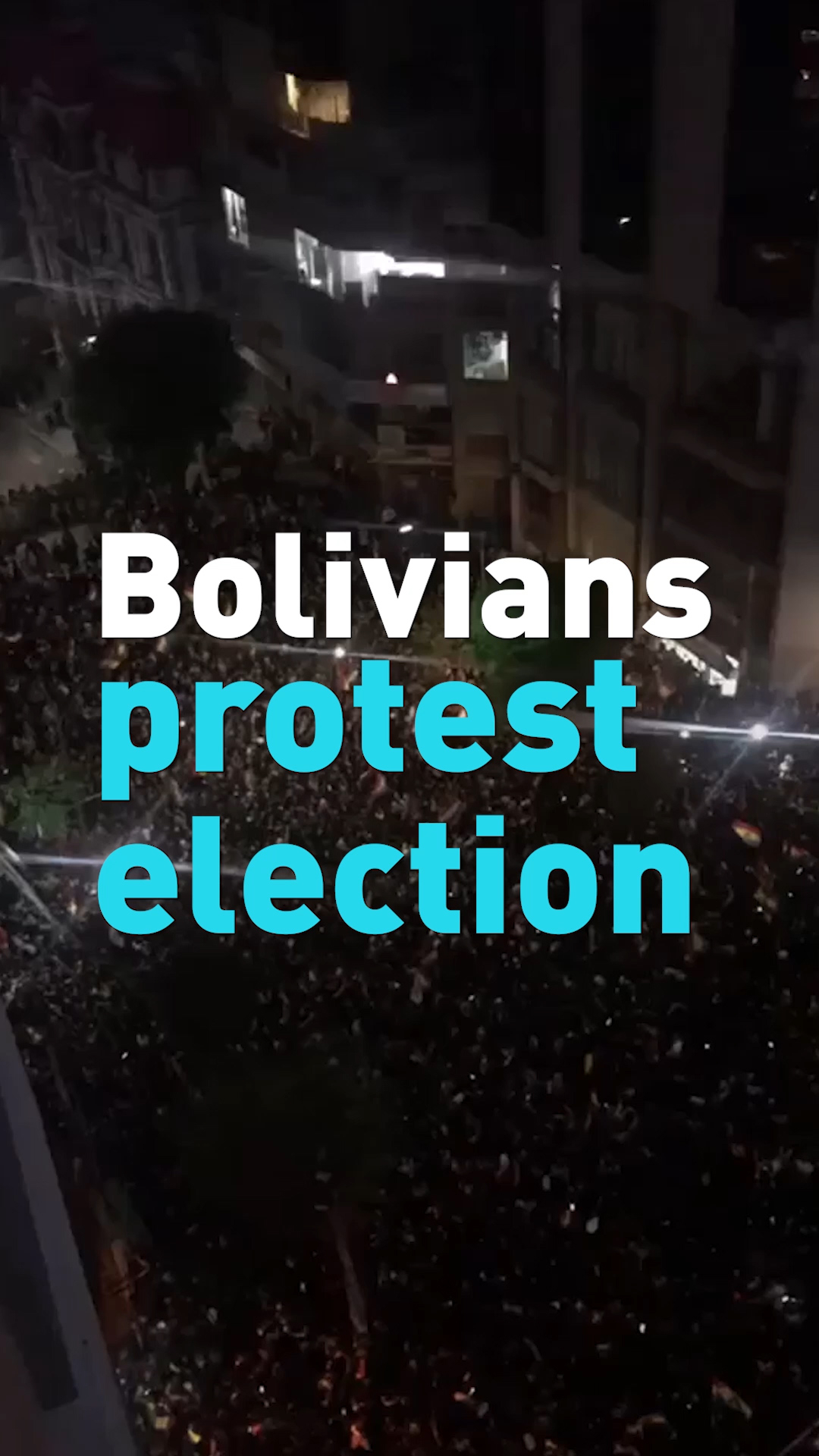
CHILE
Chilean protests began October 14th over an increase in subway fares. The protests are ongoing and have morphed into protests about the country's economic and social inequalities. The U.N. is also investigating abuse by security forces toward protesters. Dozens have been blinded in their eyes by pellets and gas canisters shot by police. Protesters demand a change in leadership and the constitution. President Sebastián Piñera has agreed to hold a referendum in April, giving people the chance to vote on whether they want a new constitution and who will draft it.
02:06
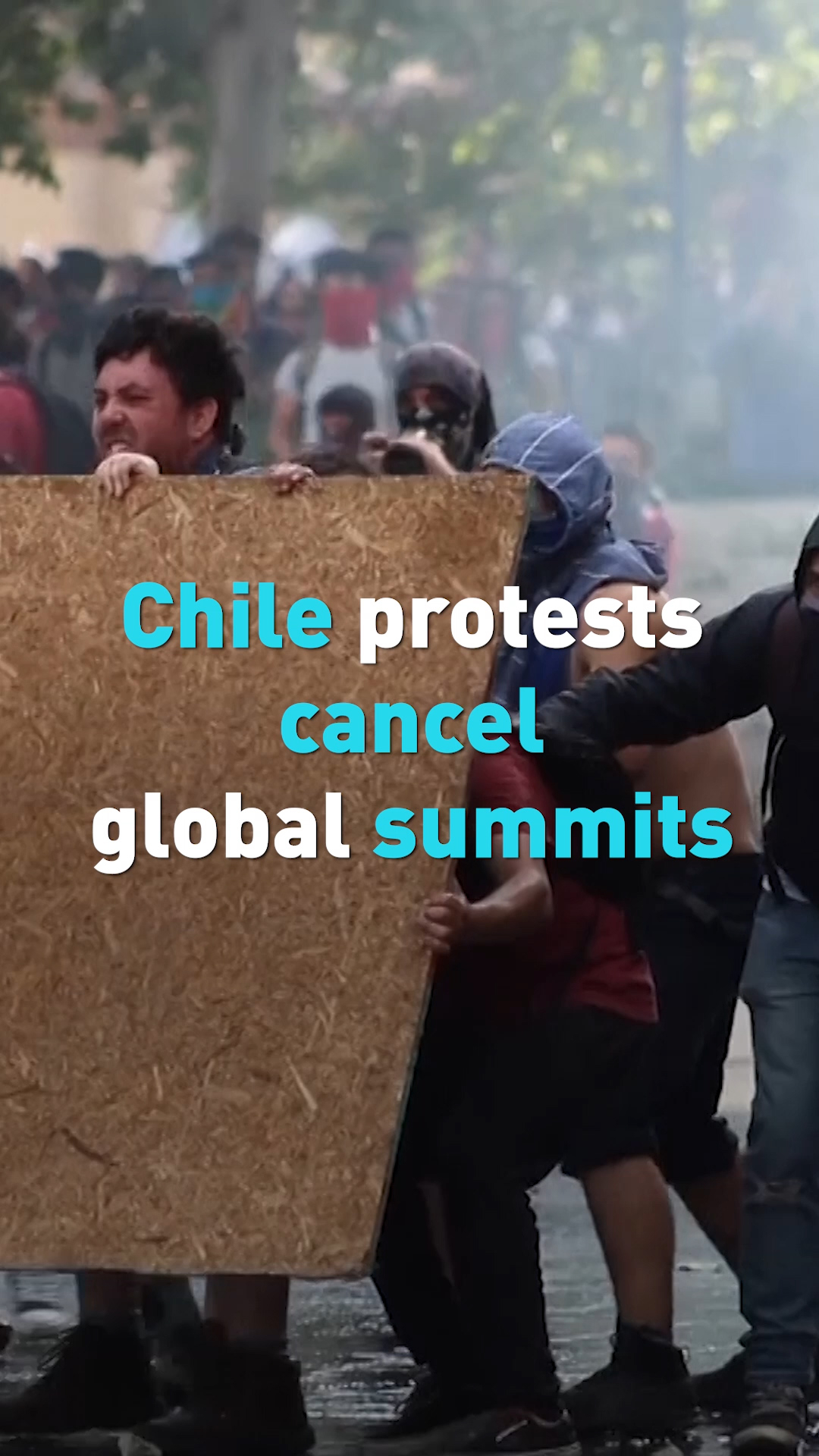
01:53
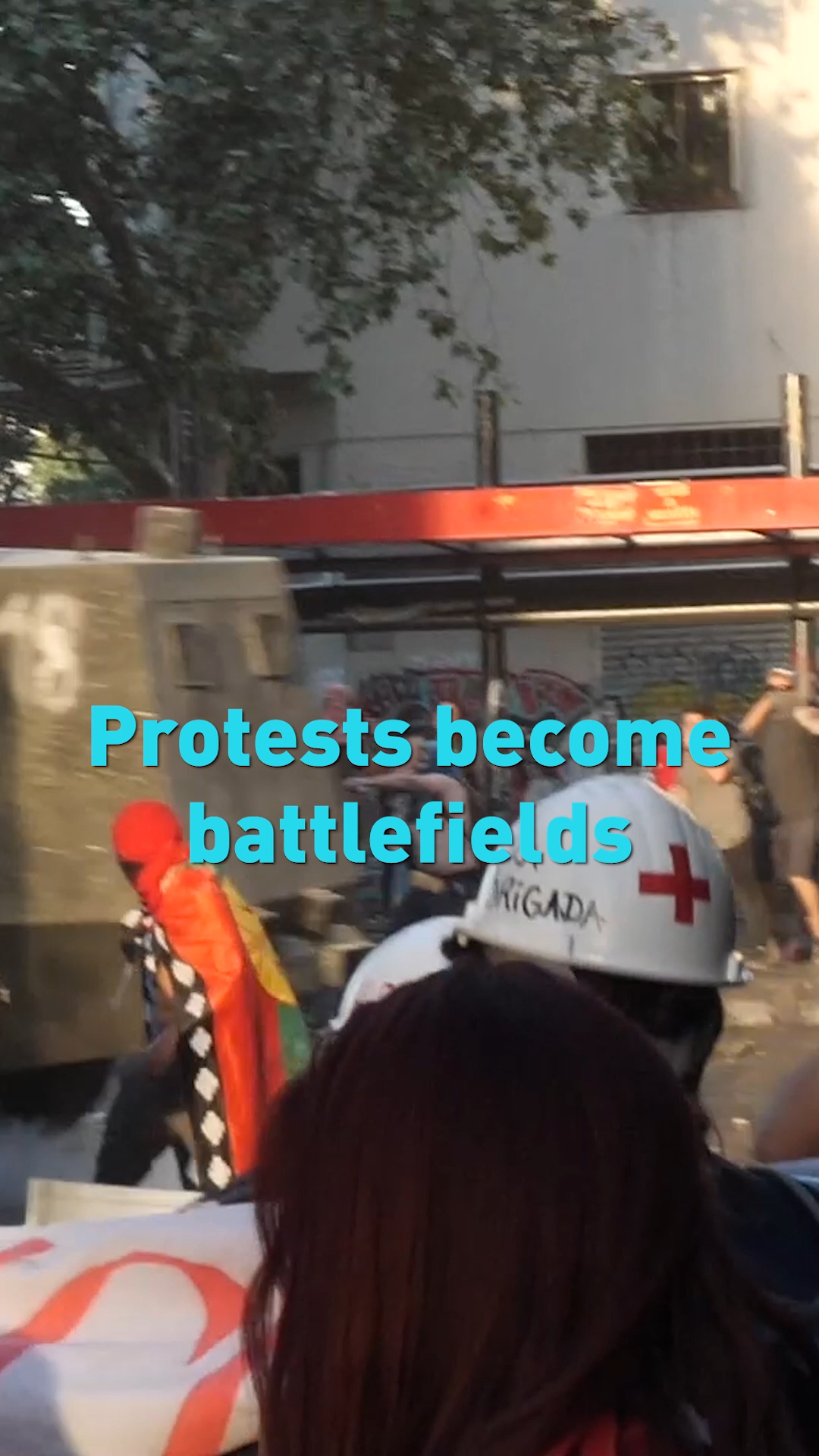
ARGENTINA
In early September, Argentinians protested the country's economic crisis, inflation, and rising food prices. Argentina has one of the highest inflation rates in the world and has been in recession for the past year. The country held presidential elections at the end of October. Voters decided to boot President Mauricio Macri and bring in President Elect Alberto Fernandez.
ECUADOR
From Oct 3-13, Ecuadorians protested against austerity measures that included canceling fuel subsidies. The cancellation of these subsidies made the price of diesel double and gas increase by 30%, overnight. Various transportation unions, students, and indigenous groups took to the streets in protest. At one point, President Lenín Moreno moved the government from Ecuador's capital, Quito, to Guayaquil. Protests ended after indigenous groups and the government reached a deal to reverse the austerity measures and begin collaborating on how to combat overspending and public debt.
01:03
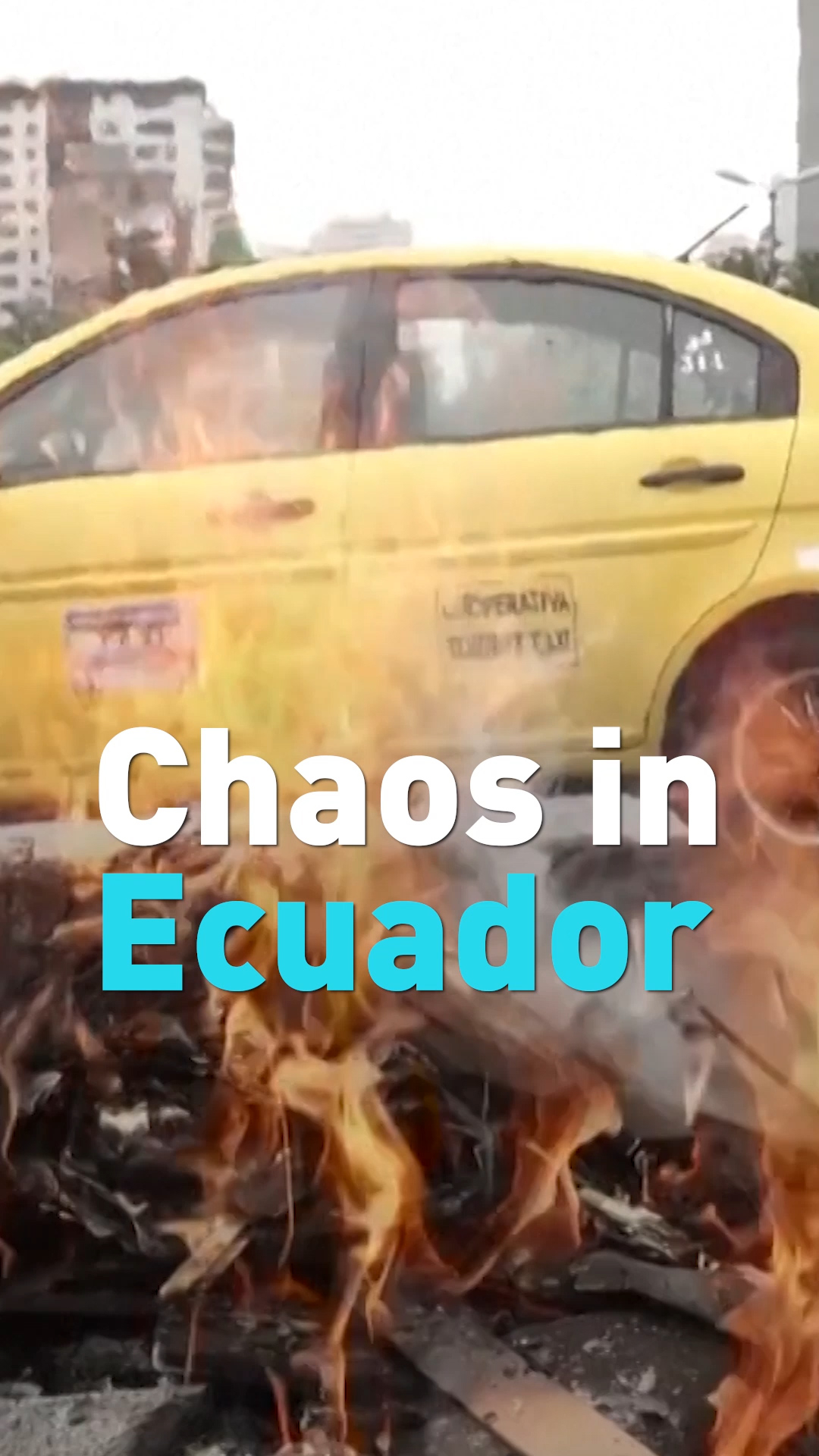
HONDURAS
Many Hondurans have been protesting sporadically throughout the past couple of months. They demand President Juan Orlando Hernandez resign. He is accused of taking bribes from Mexican drug traffickers. In October, the president’s brother Tony Hernandez was found guilty of drug trafficking. But anti- Hernandez protests aren’t new in Honduras. Protesters have come out in waves—marching against decrees they say would help the privatization of health and education. Other areas such as energy and telecommunications have already been privatized. The government has responded to these protests by deploying the military and special forces.